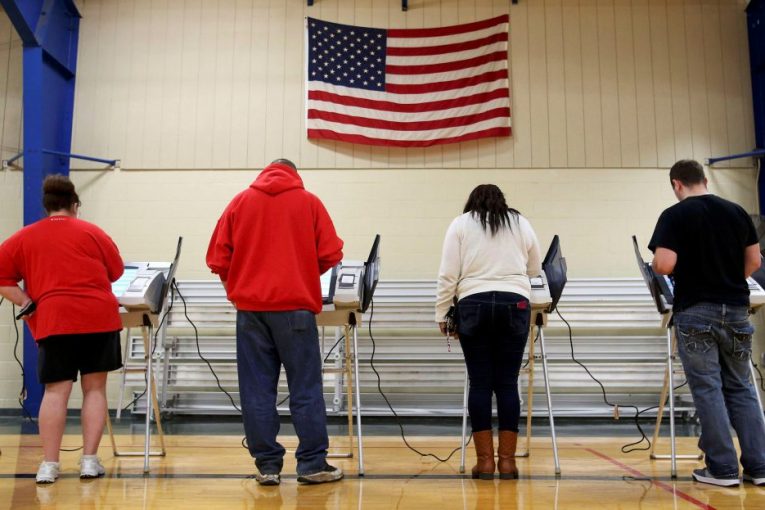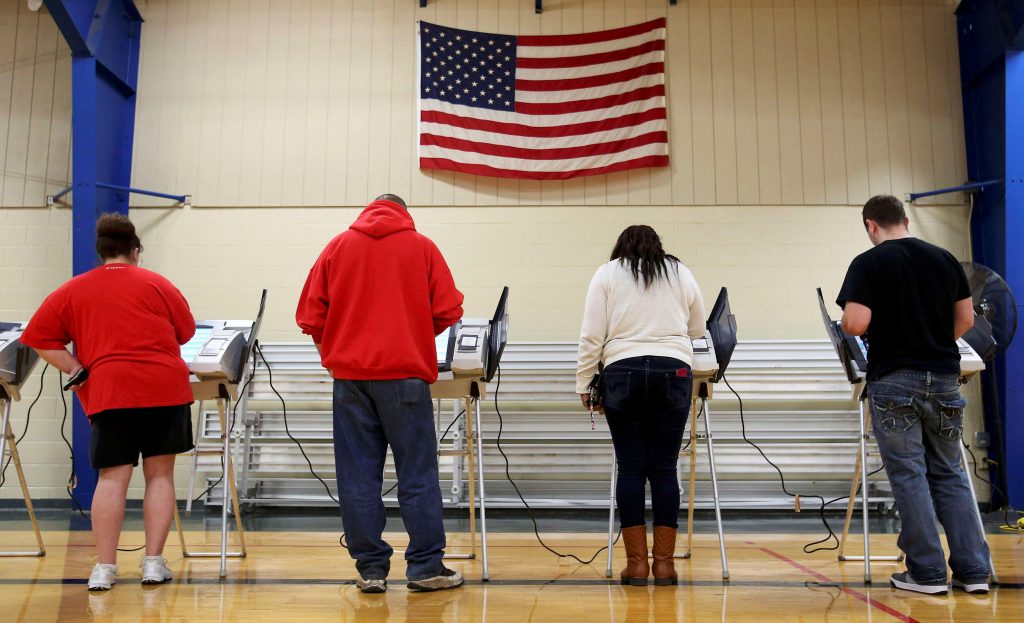

By Matt Rexroad
(Editor’s Note: The following is the letter sent on July 25 by Matt Rexroad to the City in response to the city’s initial reaction).
I write in response to your email to my co-counsel Shauna Cunningham, dated July 17, 2019. In your email, you ask my clients to enter into an extension agreement regarding potential legal claims asserted by our clients under the California Voting Rights Act (“CVRA”). Under your proposed extension, the City of Davis (“City” or “Davis”) would wait under after the 2020 Census to “consider” transitioning to district-based elections. Under your proposal, then, Davis would conduct the 2020 City Council election under the current “at large” election system — the very same election system that has been hurting and disenfranchising minority voters in Davis for at least a decade.
We have discussed your proposed resolution with our clients, and they have instructed us to refuse to your proposal. We hereby reiterate our demand that Davis change its election system to a district-based election system in time for the 2020 elections. As explained below, this is entirely possible. Our clients, and the protected classes they represent, should not have to suffer harm from another election under an unlawful system.
Notwithstanding your assertions, for the reasons explained below, it should be relatively easy for Davis to transition to a district-based election system in time for a November 2020 election. Because the ability to bring Davis into compliance with state law is so feasible, we believe that any other decision by the city council would demonstrate a callous indifference to the CVRA and the critical interests that it is meant to protect.
First, we would note that Davis does not appear to dispute our allegations that the City has been conducting at-large elections, and that those at-large elections have resulted in racially polarizing voting and dilution of minority voting rights. Further, Davis does not appear to dispute that Asian-Americans comprise approximately 22.0% of the residents in Davis, and that Latinos comprise approximately 14.2% of the residents in Davis. Both Asian-Americans and Latinos are protected classes under the CVRA.
Second, under the CVRA, election history is an important factor in evaluating whether racially polarized voting has occurred. In the past decade, under Davis’ present at-large voting system, there have been fifteen (15) city council seats up for election. During this time period, only ONE (1) Latino candidate has emerged victorious, while at least two other Latino candidates have lost their elections. In the past decade, only one (1) candidate of Asian-descent has emerged victorious in any election.
To put it another way, although Davis is currently 22.0% Asian-American, Caucasian candidates have won 12 of the 15 council seats in the past decade, and only one individual of Asian descent has been elected to the city council in the past decade.
Additionally, although Davis is currently 14.2% Latino, Caucasian candidates have won 12 of the 15 council seats in the past decade, and only one Latino has been elected to the city council in the past decade.
These facts speak volumes about the insidious, racially polarized nature of the at-large election system currently utilized by Davis.
Moreover, your proposal to wait to “consider” remedying these issues until the 2022 election means that our clients, and the protected classes they represent, would continue to suffer vote dilution for at least another election. Under Davis’ proposal, Davis would conduct at least one election (and possibly future ones) out of compliance with the CVRA, presumably for procedural convenience. Because each election is a historical event that cannot be replicated, this would lead to irreparable harm to our clients, and add to the strength of our clients’ CVRA claims.
You claim that Davis cannot possibly comply both with the CVRA and its county election protocols. This rings hollow. There are two elections every even year, a primary and a general. There is a simple solution to any supposed timeline problems with implementing a district-based election system, which is to move the 2020 City Council election to November 2020. Our understanding is that Davis could do so simply by passing a resolution.
Furthermore, not only would a November 2020 election give ample time for the City to implement a district-based election, but it would substantially increase voter participation by Latinos and Asian-Americans. Exhibit A, attached hereto, shows the voter turnout numbers among currently registered voters in the City of Davis for each election from the 2012 Primary to the 2018 General election. It is readily apparent from these data that significantly more Latinos and Asian-Americans in Davis vote in general elections than in primary elections, both in absolute terms and relative to  non-Latino/Asian voters.
non-Latino/Asian voters.
For example, 1,152 Latinos voted in the 2018 primary election in Davis, but 2,590 Latinos voted in the 2018 general election. Latino turnout therefore more than doubled from the primary election to the general election. Among Asian-Americans in Davis, 1,547 voted in the 2018 primary election, but 2,702 voted in the 2018 general election — a significant increase. Both Latinos and Asian-Americans increased their share of the overall Davis electorate from the primary to the general election.
Thus, it is evident from this data that switching from the current at-large election in March 2020, to a district-based election in November 2020, would accomplish the goals of the CVRA in two ways. First, it would bring Davis into compliance with California law by remedying the minority vote dilution that has been occurring and is likely to continue occurring under the at-large election system. Second, it would mean substantially increased minority participation among the protected classes, which would further remedy vote dilution.
In switching the election to November 2020, Davis would be following the lead of every other city in Yolo County (as well as the Davis Unified School District and many other school districts in Yolo County) in conducting November elections. (Indeed, it appears that the City of Davis is an outlier in choosing to conduct its election in March.)
We understand that the council has scheduled a meeting for August 13, 2019, two days before the statutory deadline under Elections Code Section 10010. If, by August 15, Davis does not adopt a resolution of intent to transition to a district-based election system, with a specific timeline that accomplishes this transition in time for the 2020 election (whether March or November) — we will be forced to seek judicial enforcement of our clients’ rights under the CVRA.
Additionally, we will seek a preliminary injunction against the City’s March 2020 election. See Jaregui v. City of Palmdale (2014) 226 Cal.App.4th 781, 807-808 (the CVRA should be broadly construed as remedial legislation enacted for a public purpose, and Elections Code Section 14029 allows a court to enjoin an election). For the reasons stated above, among others, we are likely to prevail on the merits at trial. And because elections cannot be re-done, the potential harm to our clients and the protected classes resulting from another election conducted in violation of the CVRA is irreparable. Thus, a court is likely to enjoin the March 2020 election anyway.
Finally, although it is not necessary under the CVRA to prove discriminatory intent, it is likely that a court would not look kindly upon Davis’ refusal to transition to a district-based election system in time for the 2020 election. Consider that in refusing to transition in time for the 2020 election:
- The City would have knowingly chosen to conduct an election in violation of state law, despite notice of the CVRA claims many months before that election.
- The City would have refused to implement a district-based election system despite notice of the CVRA claims, preferring to keep an at-large system that furthered the historical pattern of racially polarized voting that benefits the current city council.
- The City would have insisted on a March election, despite knowledge that minority turnout among the protected classes in question would be substantially lower thanan election in November. This could give rise to an inference that the council favored an election where minority voter participation would be lower.
- The City would have insisted on a March election, refusing to simply pass a resolution to move the election to November. This could give rise to an inference that the council favored an election where minority voter participation would be lower.
- The City, when given notice of the existence of CVRA claims and some of the evidence in support of those claims, chose to do nothing to remediate the lack of compliance. Instead the City asked our clients to wait years before the City would even consider transitioning to a district-based election system. This could give rise to an inference that the City was not acting in good faith to bring its election system in compliance with the CVRA.
Shauna Cunningham and our clients look forward to your response no later than August 15, 2019.

Wait . . . what? I thought someone stated Asian-Americans were not a ‘protected class’ (whatever that is).